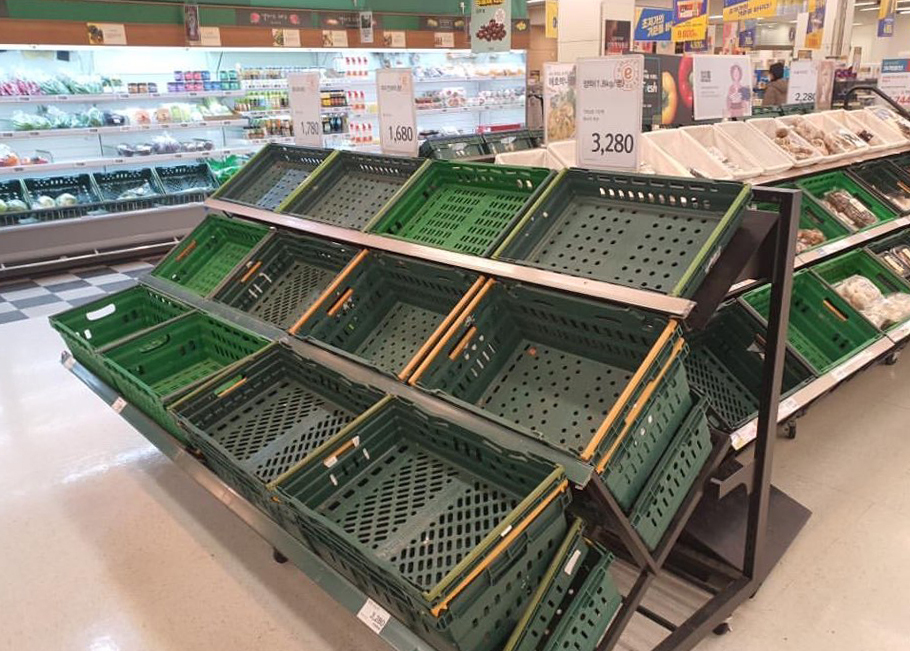 |
Empty stocks at a brick-and-mortar store (Yonhap) |
Online shopping for daily necessities and food has soared amid the coronavirus outbreak in South Korea, but larger retailers face a limit: Sunday trading rules.
Since 2012, the Distribution Industry Development Act has banned large stores trading for at least two days a month for the sake of fostering traditional markets and small shops. Usually, the closures come on the second and fourth Sundays of every month.
“On off-days, customers are left with fewer options as the ban restricts superstores’ offline operations and even online delivery services,” said Ahn Chang-hyun, a PR manager of Emart’s online store SSG.com.
“On Feb. 23, which was an off-day, all of Emart’s 145 offline outlets had to close their doors. Online delivery services, provided by about 100 of them, were also stopped.”
This has a knock on effect: by Feb. 23, Emart’s online delivery reservations were fully booked for deliveries by midnight of Feb. 28 in Daegu and cities in North Gyeongsang Province where the COVID-19 outbreak is the most serious in Korea.
“Every off-day costs 330 million won ($275,250) of sales for one Homeplus outlet. As there are 147 outlets nationwide, the loss amounts to 48.5 billion won a day (of closure),” said Lee Sung-soo from the marketing team of Homeplus.
“Though the ban aims to protect and vitalize traditional markets by closing superstores twice a month, it only gave a boost to online shopping. In the meantime, customers were left out,” Lee said.
According to the Korean Chamber of Commerce, traditional markets accounted for 10.5 percent of retail sales in 2017, a 1 percentage point drop from 2012 when the ban was established. Superstores saw a 10 percentage drop to 15.7 percent while online shopping rose 8 percentage points to 28.5 percent.
The Korea Chainstores Association, whose members include the three grocery giants Emart, Lotte Mart and Homeplus, recently sent a recommendation letter to the government asking for a temporarily relief on the regulation to facilitate online deliveries on mandatory off-days.
Currently, retailers are processing online deliveries on off-days at some of their independent large-scale online-only distribution centers. Such facilities are categorized as distribution centers, unaffected by the ban. However, those facilities lack the delivery coverage offline outlets can offer, as they are small in number, according to the industry sources.
Though some demand unfulfilled by retailers is absorbed by e-commerce firms, which are exempt from the regulation, demand is overwhelming their capacity, they said.
Coupang, which processes an average of 2.5 million orders a day, is currently struggling to deal with more than 3 million daily orders recently.
“We are mobilizing every measures such as expanding delivery personnel in the face of an unprecedented flood of orders,” Coupang official said.
By Kim Byung-wook (
kbw@heraldcorp.com)








![[Today’s K-pop] Blackpink’s Jennie, Lisa invited to Coachella as solo acts](http://res.heraldm.com/phpwas/restmb_idxmake.php?idx=644&simg=/content/image/2024/11/21/20241121050099_0.jpg)